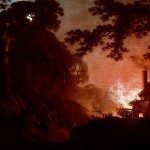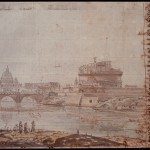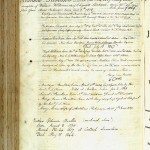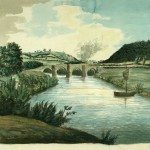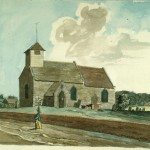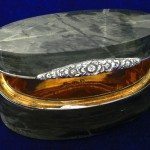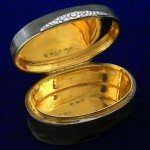Browse Times
1765-1775
1765
William Small moved to Birmingham from Virginia. James Watt invented a separate condenser which improved the efficiency of Newcomen’s engine by providing a separate chamber for condensing steam. John Taylor, button maker and Sampson Lloyd II, ironmaster set up Birmingham’s first bank.
1766
Erasmus Darwin met Richard Lovell Edgeworth and Jean-Jacques Rousseau. Three canals were started in the West Midlands: The Birmingham to Wednesbury Canal, the Trent and Mersey Canal and the Staffordshire to Worcestershire Canal. Thomas and George Cranage at Coalbrookdale took out a patent for converting pig iron into wrought iron.
1767
James Watt visited Erasmus Darwin. James Keir settled in West Bromwich. Publication of Joseph Priestley’s History of Electricity. Publication of Burdett’s Map of Derbyshire, the first properly surveyed English county map.
1768
The import of foreign silk was prohibited. This encouraged the development of the silk industry in Derby, Leek and Macclesfield and ribbon weaving in Coventry, Bedworth and Nuneaton. Richard Arkwright developed the water frame to spin cotton.
1769
James Watt patented the single-action steam engine in Scotland.
1770
Thomas Day settled in Lichfield and Richard Lovell Edgeworth visited him there.
1771
Richard Lovell Edgeworth and Thomas Day visited Jean-Jacques Rousseau in France. Jesson and Wright in Wednesbury took out a patent for “potting and stamping iron” which was adopted by other Black Country firms. Richard Arkwright’s water frame was first used in Nottingham. A water-powered version was also created at Cromford in Derbyshire. Josiah Wedgwood created a new factory at Etruria to manufacture his pottery.
1772
The Staffordshire and Worcestershire Canal and the Birmingham to Wednesbury Canal were opened to traffic.
Supported by Lord Shelburne until 1781, Joseph Priestley had the leisure to develop his scientific experiments.
1773
James Keir established a chemical works at Tipton</a, supplying alkali, potash, soda soap and red lead to the glass industry.
Thomas Day's poem The Dying Negro published. Establishment of the Birmingham Assay Office.
1774
John Wilkinson developed a method of boring cylinders with mechanical precision.
Encouraged by Matthew Boulton, James Watt came to Birmingham from Scotland. John Wilkinson’s invention enabled him to produce the high quality cylinders he needed for his steam engines.
1775
The name Lunar Society was first used. Deaths of William Small, John Taylor, button maker and John Baskerville, printer. William Withering moved to Birmingham taking over William Small’s practice and his place in the Lunar Society. Start of Matthew Boulton and James Watt partnership. Baddeley introduced transfer printing into the pottery industry. The earliest recorded building society was Ketley’s in Birmingham in 1775. It was followed by the establishment of others in the West Midlands. Start of the American War of Independence
Articles in this time period
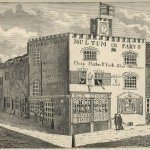
“Allin’s Cabinet of Curiosities”
The site of the Municipal Hall, corner of Congreve Street Old and New Birmingham: A History of… read more »
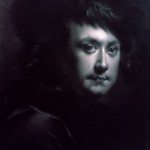
A Biography of Joseph Wright
Joseph Wright of Derby: Painter of the Enlightenment and the Industrial Revolution Text: Olga Baird Joseph Wright… read more »
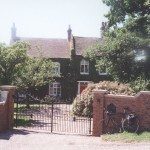
A Biography of Robert Bage
Image: The Mill House, Elford, near Lichfield. The home of Robert Bage in the late 18th century. Robert… read more »
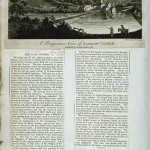
A Perspective View of Ludlow Castle for the European Magazine, and article on The Late Storms
Watton’s Newspaper Cuttings, Volume 5 Image from: Shropshire Archives
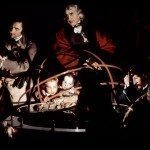
A Philosopher Lecturing on the Orrery (1764-1766)
Image:Joseph Wright of Derby (1734-1797. Oil on Canvas, Image from: Derby Museum & Art Gallery Public scientific lectures… read more »
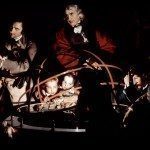
A Philosopher lecturing on the Orrery (1766)
Wright’s painting is a celebration of scientific knowledge and the interpreter of this knowledge, the philosopher. The… read more »
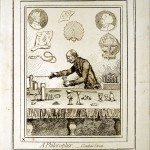
A Philosopher, Conduit Street
Image from: Joseph Priestley Collection by Samuel Timmins, Birmingham City Archives.
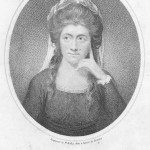
A Portrait of Anna Seward
Anna Seward: “Swan of Lichfield” Born in Derbyshire in 1742, Anna Seward was the daughter of Thomas… read more »
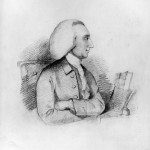
A Portrait of Dr William Small
Pencil sketch of Dr William Small, member of the Lunar Society and a prominent physician in Birmingham during… read more »
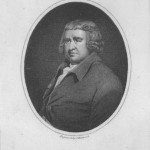
A Portrait of Dr. Erasmus Darwin
Erasmus Darwin: Doctor, Inventor, Poet and Educationalist Erasmus Darwin was born at Elston, near Nottingham, in 1731… read more »
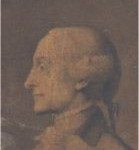
A Portrait of Dr. William Small
William Small: Teacher, Scientist and Mentor William Small was born in Forfarshire, Scotland, in 1734, the son… read more »
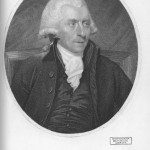
A Portrait of Dr. William Withering
William Withering: Physician, Botanist and Mineralogist In 1741, William Withering was born at Wellington, Shropshire, the only… read more »
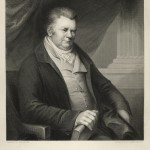
A Portrait of James Keir
James Keir: Chemist, Geologist, Industrialist and Inventor James Keir was born in Stirlingshire, Scotland in 1735. He… read more »
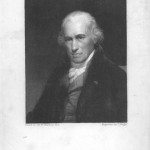
A Portrait of James Watt
James Watt: Inventor James Watt was born in Greenock, Scotland in 1736. His father was an instrument… read more »
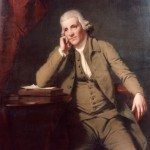
A Portrait of Jedediah Strutt
Jedediah Strutt: Industrialist and Philanthopist Text: Olga Baird Jedediah Strutt (1726-1797) was one of leading pioneer industrialists of… read more »
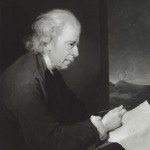
A Portrait of John Whitehurst
John Whitehurst: Clockmaker, Engineer and Geologist John Whitehurst was born in Congleton, Cheshire in 1713, the son… read more »
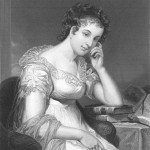
A Portrait of Maria Edgeworth
Maria Edgeworth: Author and Educationalist Text: Kate Iles Image: Birmingham City Archives Maria Edgeworth was born in Oxford in… read more »
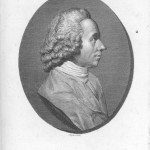
A Portrait of Rev. Joseph Priestley
Joseph Priestley: Scientist, Philosopher and Reformer Born into a Yorkshire wool manufacturing family in 1733, Priestley was… read more »
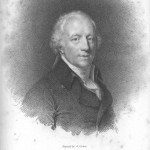
A Portrait of Richard Lovell Edgeworth
Richard Lovell Edgeworth: Inventor, Educator and Reformer In 1744, Edgeworth was born in Bath into a landowning… read more »
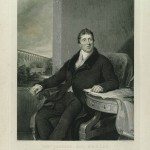
A Portrait of Thomas Telford: Civil Engineer
Image: Portrait of Thomas Telford (1757-1834). Frontispiece of Atlas to the Life of Thomas Telford, Civil Engineer containing eighty-three… read more »
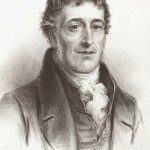
A Portrait of William Murdoch
William Murdock: The Incomparable Mechanic William Murdoch (1754 -1839) was one of most creative and least known… read more »
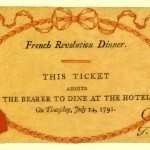
A Sorry End: The Priestley Riots of 1791
Image: Ticket for the French Revolution Dinner, Birmingham 14 July 1791. The Dinner began the chain of events… read more »
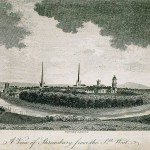
A View of Shrewsbury from the South-West
Watton’s Newspaper Cuttings, Volume 5 Image from: Shropshire Archives
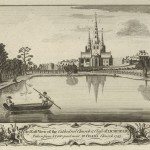
A Window on the World: Richard Greene’s Museum of Curiosities in Lichfield
Image: “An East View of the Cathedral Church of St Chad’s & Close of Lichfield; Taken from Stow-pool… read more »
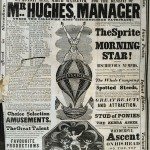
Advertisement: Batty’s Circus, Shrewsbury, including the ascent of Mr Hughes on his head on top of a balloon
Watton’s Newspaper Cuttings, Volume 4 Image from: Shropshire Archives
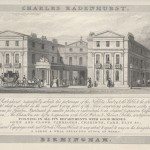
Advertisement: Charles Radenhurst, New Royal Hotel, New Street, Birmingham
Image from: William Hawkes Smith, Birmingham and its Vicinity as a Manufacturing and Commercial District (London and Birmingham, 1836), Local… read more »
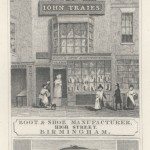
Advertisement: Iohn Traies, Boot and Shoe Manufacturer, Birmingham
Image from: William Hawkes Smith, Birmingham and its Vicinity as a Manufacturing and Commercial District (London and Birmingham, 1836), Local… read more »
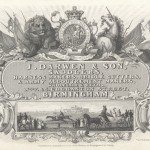
Advertisement: J. Darwen and Son, Saddlers, Harness Makers, Bridle Cutters, etc, Birmingham
Image from: William Hawkes Smith, Birmingham and its Vicinity as a Manufacturing and Commercial District (London and Birmingham, 1836), Local… read more »
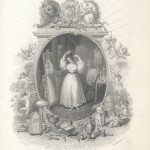
Advertisement: Kendall and Son, Perfumers, Cabinet Case Makers, and Importers of Foreign Fancy Merchandise, London
Image from: William Hawkes Smith, Birmingham and its Vicinity as a Manufacturing and Commercial District (London and Birmingham, 1836), Local… read more »
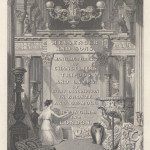
Advertisement: Messenger and Sons, Manufacturers of Chandeliers, Tripods and Lamps
Image from: William Hawkes Smith, Birmingham and its Vicinity as a Manufacturing and Commercial District (London and Birmingham, 1836), Local… read more »
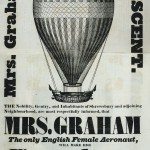
Advertisement: Mrs Graham’s Ascent: the first ascent of the Only English Female Aeronaut
Watton’s Newspaper Cuttings, Volume 2 Image from: Shropshire Archives
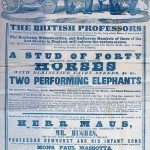
Advertisement: Opening of Hughes’ s Great Mammoth Equestrian Establishment, Shrewsbury
Watton’s Newspaper Cuttings, Volume 5 Image from: Shropshire Archives
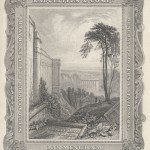
Advertisement: Radclyffes and Co, General Printers and Stationers, Birmingham
Image from: William Hawkes Smith, Birmingham and its Vicinity as a Manufacturing and Commercial District (London and Birmingham, 1836), Local… read more »
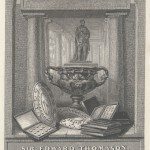
Advertisement: Sir Edward Thomason, Birmingham, Manufacturer of Articles
Image from: William Hawkes Smith, Birmingham and its Vicinity as a Manufacturing and Commercial District (London and Birmingham, 1836), Local… read more »
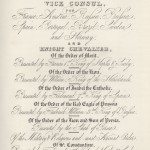
Advertisement: Sir Edward Thomason, Vice Consul and Knight Chevalier
Image from: William Hawkes Smith, Birmingham and its Vicinity as a Manufacturing and Commercial District (London and Birmingham, 1836), Local… read more »
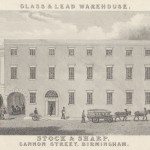
Advertisement: Stock and Sharp, Glass and Lead Warehouse, Birmingham
Image from: William Hawkes Smith, Birmingham and its Vicinity as a Manufacturing and Commercial District (London and Birmingham, 1836), Local… read more »
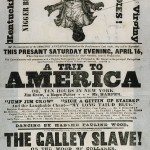
Advertisement: The Last Appearance of Mr Harper, Black singer and comedian
Watton’s Newspaper Cuttings, Volume 5 Image from: Shropshire Archives
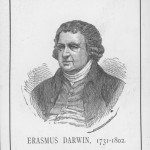
An “ever-open door”: Erasmus Darwin and Lichfield
Samuel Johnson described Lichfield as a “city of philosophers” where Erasmus Darwinwas the most prominent of an outstanding group of… read more »
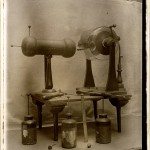
Apparatus
Image from: Joseph Priestley Collection by Samuel Timmins, Birmingham City Archives.
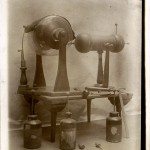
Apparatus
Image from: Joseph Priestley Collection by Samuel Timmins, Birmingham City Archives.
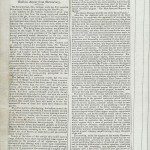
Article from The Salopian Journal, 10 October 1838, on Mrs Graham’s ascent in a balloon
Watton’s Newspaper Cuttings, Volume 2 Image from: Shropshire Archives
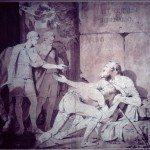
Belisarius receiving Alms (1775)
Image: Joseph Wright of Derby (1734-1797), Pen, ink and brown wash over pencil. Image from: Derby Museum & Art… read more »
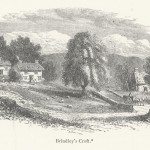
Brindley’s Croft
The birthplace of James Brindley was born at Tunstead, near Buxton in Derbyshire. Samuel Smiles, Lives of… read more »



